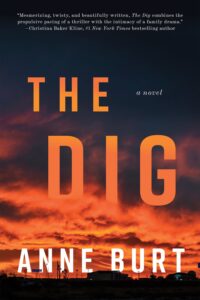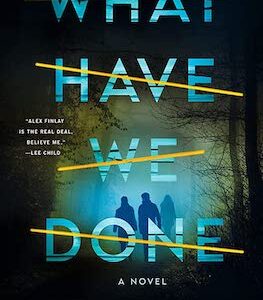Every crime story is, on some level, a story about justice served or justice denied. And when the author situates the crime or crimes that are perpetrated within the context of a system of oppression that negatively effects one or more groups of people based on their affiliations or identities—social justice—the world of the novel cracks open to let in some of the biggest, darkest, deepest questions about humanity itself.
When I set out to write my debut novel, The Dig, the heart of the story came straight from the ancient Greek tragedy, Antigone. In Sophocles’ play, a young woman follows her moral and ethical conviction that the death of her brother who rebelled against the ruling faction of Thebes matters as deeply as the death of her other brother, who fought on behalf of the state.
My contemporary Antigone, Antonia King, is a woman at odds with her own history.
She and her brother were found amid the rubble of a bombed-out apartment in Sarajevo in 1993 and taken in by a family of contractors in Thebes, Minnesota. Eager to escape the constraints of her adopted town, adult Antonia embarks on a high-powered legal career. But it isn’t long before her brother’s mysterious disappearance pulls her back home. There, over the course of a single day, Antonia unearths decades of secrets and lies, leading to shocking revelations about her adoptive family—and the sinister truth behind her biological mother’s death.
Whose lives matter? Whose deaths? The question is as central to the United States today as it was in Greece nearly three thousand years ago. Because of this animating question, Antonia’s crime story hinges on questions of social justice: the connection between her life, her brother’s life, and the litany of inequities faced by refugees from genocide or crimes against humanity from a variety of countries.
My favorite crime writers always do more than dish out a great story (although a great story is a baseline requirement!): they provide social commentary that causes the reader to reflect on the human condition through characters who see, hear, and respond to situations in ways that make us experience the world anew.
Here are four recent crime novels that seamlessly thread issues of social justice throughout their propulsive storytelling:
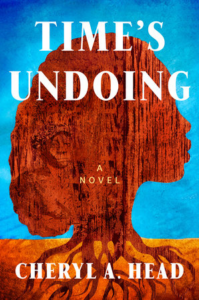
Time’s Undoing by Cheryl Head
Cheryl Head works a century of racism throughout the plot of her newest crime novel, weaving the true history of her great-grandfather’s murder into her story. Meghan, a Black journalist in Detroit covering the police shooting of one unarmed Black man after another, pursues the elusive truth behind the decades-old killing of Robert, her great-grandfather, by a white police officer in segregated Birmingham, Alabama. Head chooses to tell the tale through alternating points-of-view: Meghan in 2019, and Robert in 1929. Meghan encounters the same systemic racism in contemporary Birmingham that her ancestors faced 90 years prior. Head has been vocal about the importance of infusing her identity as a queer Black woman into the P.I. protagonist of her award-winning Charlie Mack Motown Mystery series in order to dive into discourse on social justice issues that affect her communities.
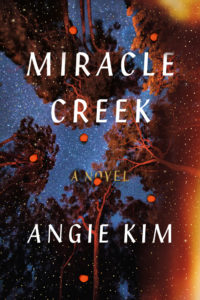
Miracle Creek by Angie Kim
Fostering the ability to see the world through the eyes of others—empathy—is often at the heart of social justice teaching and learning. Novels can short-circuit the distance between two people by bringing the reader inside the mind and heart of the characters on the page. Angie Kim employs multiple perspectives to explore ableism, racism, sexism, and anti-immigration in her 2019 Edgar-award-winning mystery Miracle Creek. In a small Virginia town, a disparate group of people connect through a special treatment center, a hyperbaric chamber that may cure a range of conditions from infertility to autism. But then the chamber explodes, two people die, and it’s clear the explosion wasn’t an accident. Kim gives each of her point-of-view characters, including the ultimate perpetrator of the criminal act that provides the hinge for this complex and utterly gripping courtroom drama, a backstory influenced by societal exclusion in realistic ways. Kim credits her experiences as a lawyer, the mother of a child with a disability, and a Korean immigrant for much of the inspiration behind the plot.
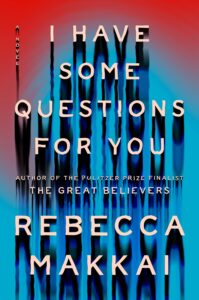
I Have Some Questions For You by Rebecca Makkai
Sophisticated crime fiction can propel the reader inward to think about their own complicity perpetuating injustice. Pulitzer Prize finalist Rebecca Makkai’s does just that in her newest book, I Have Some Questions For You. Makkai gives us both a murder mystery set on a boarding school campus and a multifaceted lens into society’s obsession with violent true crime stories – especially when the victims are young white women. Bodie Kane, a successful podcaster and professor, returns to teach a course at the boarding school where her former roommate was murdered years before. The victim was a white teenager, and the man convicted of the crime was the school’s Black athletic trainer, Omar Evans. Bodie opens up the past to ask if the school’s rush to convict Omar left the real killer at large. But Makkai’s investigation goes beyond the story at the center – she’s investigating the tendency of true crime junkies to fetishize gore, guts, and intrigue as the expense of challenging systemic racism and sexism that destroys lives and feeds them into a profit-generating entertainment meat grinder.
This meta reading experience encourages the reader to ask: “who am I in relation to what I’m witnessing?”: an important goal in any social justice movement.
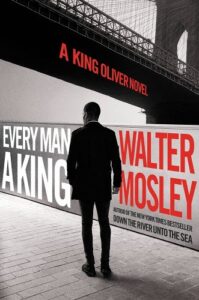
Every Man a King by Walter Mosley
Walter Mosley has been serving up bitter truths about racial injustice through unforgettable characters since 1990’s Devil in a Blue Dress introduced us to Easy Rawlins, a Black private eye operating in a racist world. Mosley’s latest, Every Man a King, gives us Joe King Oliver, a Black ex-cop investigating the case of a Quiller, a white supremacist possibly framed for murder and selling secrets to the Russians. Mosley complicates Quiller though: this white supremacist is married to a Black woman. Mosley, as always, creates nuance within the moral and ethical entanglements that dance across his pages. His own upbringing is nuance personified: the child of a Black father and a Jewish mother, Mosley speaks about the influence of racism and antisemitism on his commitment to social justice, and on his lived experience of both parents’ cultures growing up.
Each of these novels works because they satisfy us as readers on every level. If a writer dishes up too much speechifying and not enough storytelling, we lose the immersive feeling we crave in a great book, film, or play. Crime stories, with their inherently human-focused constraints (the ticking clock, the dark night of the soul, the moment when all is lost, the final resolution, and always the big picture question: will justice be served?) create opportunities to empathize with characters who bear the burden of injustice. The chills and thrills of a great mystery can be more than an escape: it can provide a window into understanding people different from us; the key to seeing each other’s struggles beyond the constraints of our own lived lives.
***


